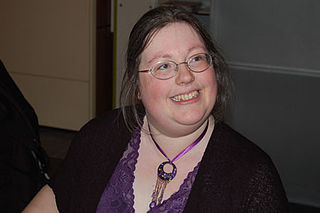A Quote by Tansy Rayner Roberts
Issues to do with disability, mental health and not being neurotypical often affect many genuine teenagers but are rarely reflected in the fiction they read.
Related Quotes
One of the issues I think is very important, in many communities of color, there's a stigma about mental health. We find that the shaming that comes from acknowledging that one may have some issues that may relate to mental health, often people are not willing to go and seek additional help because of that shaming or that cultural stigma that's associated with it. And I think that we need to make this change in how people approach mental health.
Mental strength is not the same as mental health. Just like someone with diabetes could still be physically strong, someone with depression can still be mentally strong. Many people with mental health issues are incredibly mentally strong. Anyone can make choices to build mental strength, regardless of whether they have a mental health issue.
One of the things we need to do is address mental health care as an integral part of primary care. People often aren't able to navigate a separate system, so you see successful models where a primary care physician is able to identify, diagnose, and concurrently help people get mental health treatment who have mental health issues.
It's the thing I struggle with every day: the mental diligence and stamina needed to sit in front of the computer, open the file, start writing and to keep doing so, word after word, until I've created the next story. A combination of learning disability and chronic health issues make that the hardest thing for me.
If you struggle with issues of documentation, issues of your health care, issues of whether or not you'll be punished for being open about who you are, those things affect how you can be employed or not employed, how you can get an apartment or not get an apartment, how it is that you feel free or not free.
There are whole states where people [with addiction or mental health issues] can't get to a doctor. If that were true of pancreatic cancer, if that were true of heart disease, if that were true of diabetes, we'd all understand that it made no sense at all. And yet we somehow approach mental health from a very different standard.





































